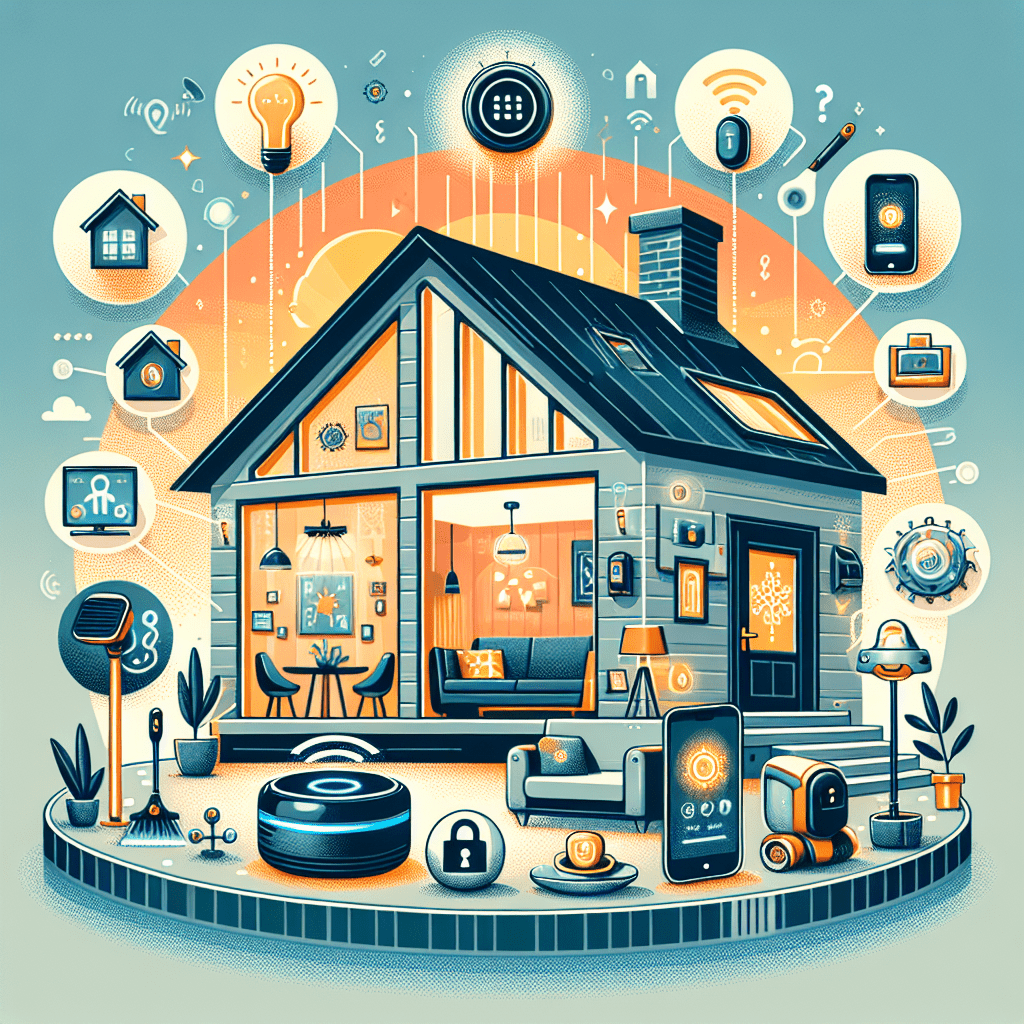The Rise of Smart Homes: How Automation is Making Our Lives Easier
In recent years, smart homes have become increasingly popular among homeowners. With the rise of automation technology, our lives have been made easier and more convenient than ever before. Smart homes utilize various devices and systems that are interconnected to provide homeowners with increased control, security, and energy efficiency. From smart thermostats to voice-controlled assistants, the possibilities for automation in the home are endless.
The Benefits of Smart Homes
One of the main benefits of smart homes is the convenience they offer. With automation technology, homeowners can control various aspects of their homes with just a few clicks or voice commands. For example, smart thermostats allow homeowners to adjust the temperature of their homes remotely using their smartphones, while smart lighting systems can be programmed to turn on and off at specific times of the day.
Smart homes also provide increased security for homeowners. Many smart home systems come equipped with security cameras, motion sensors, and smart locks that can help deter burglars and keep homeowners safe. In addition, these systems can send notifications to homeowners’ smartphones if any suspicious activity is detected, allowing them to take action immediately.
Another major benefit of smart homes is the energy efficiency they offer. By automating various systems in the home, such as lighting, heating, and cooling, homeowners can reduce their energy consumption and lower their utility bills. For example, smart thermostats can learn homeowners’ preferences and adjust the temperature of the home accordingly, leading to significant energy savings over time.
The Future of Smart Homes
As technology continues to advance, the possibilities for automation in the home are only going to increase. In the future, we can expect to see even more interconnected devices and systems that will make our lives easier and more efficient. For example, smart appliances such as refrigerators, ovens, and washing machines can be programmed to communicate with each other and perform tasks automatically, saving homeowners time and effort.
Furthermore, the rise of artificial intelligence and machine learning will enable smart homes to become even smarter and more intuitive. These technologies will allow smart home systems to learn homeowners’ habits and preferences, anticipate their needs, and adjust settings automatically to provide the most comfortable and efficient living environment possible.
Conclusion
Overall, the rise of smart homes and automation technology is revolutionizing the way we live and making our lives easier and more convenient than ever before. With the benefits of increased control, security, and energy efficiency, smart homes are becoming increasingly popular among homeowners looking to simplify their lives and enhance their living spaces. As technology continues to advance, we can expect to see even more innovations in the world of smart homes that will further improve our quality of life.
FAQs
Q: Are smart homes secure?
A: Smart homes can be secure if properly set up and maintained. It is important for homeowners to use strong passwords, keep their software up to date, and enable security features such as two-factor authentication to protect their smart home devices from hackers.
Q: Do smart homes save energy?
A: Yes, smart homes can help save energy by automating various systems in the home and making them more efficient. By using smart thermostats, lighting systems, and appliances, homeowners can lower their energy consumption and reduce their utility bills.
Q: How much does it cost to make a home smart?
A: The cost of making a home smart can vary depending on the types of devices and systems you choose to install. Basic smart home setups can range from a few hundred dollars to a few thousand dollars, while more advanced systems can cost tens of thousands of dollars.
TIP
When setting up a smart home, it is important to research different devices and systems to find the ones that best suit your needs and budget. Consider starting small with basic devices such as smart light bulbs or a smart thermostat before investing in more advanced systems. Additionally, be sure to secure your smart home devices with strong passwords and keep them updated to protect your privacy and security.
#Rise #Smart #Homes #Automation #Making #Lives #Easier

